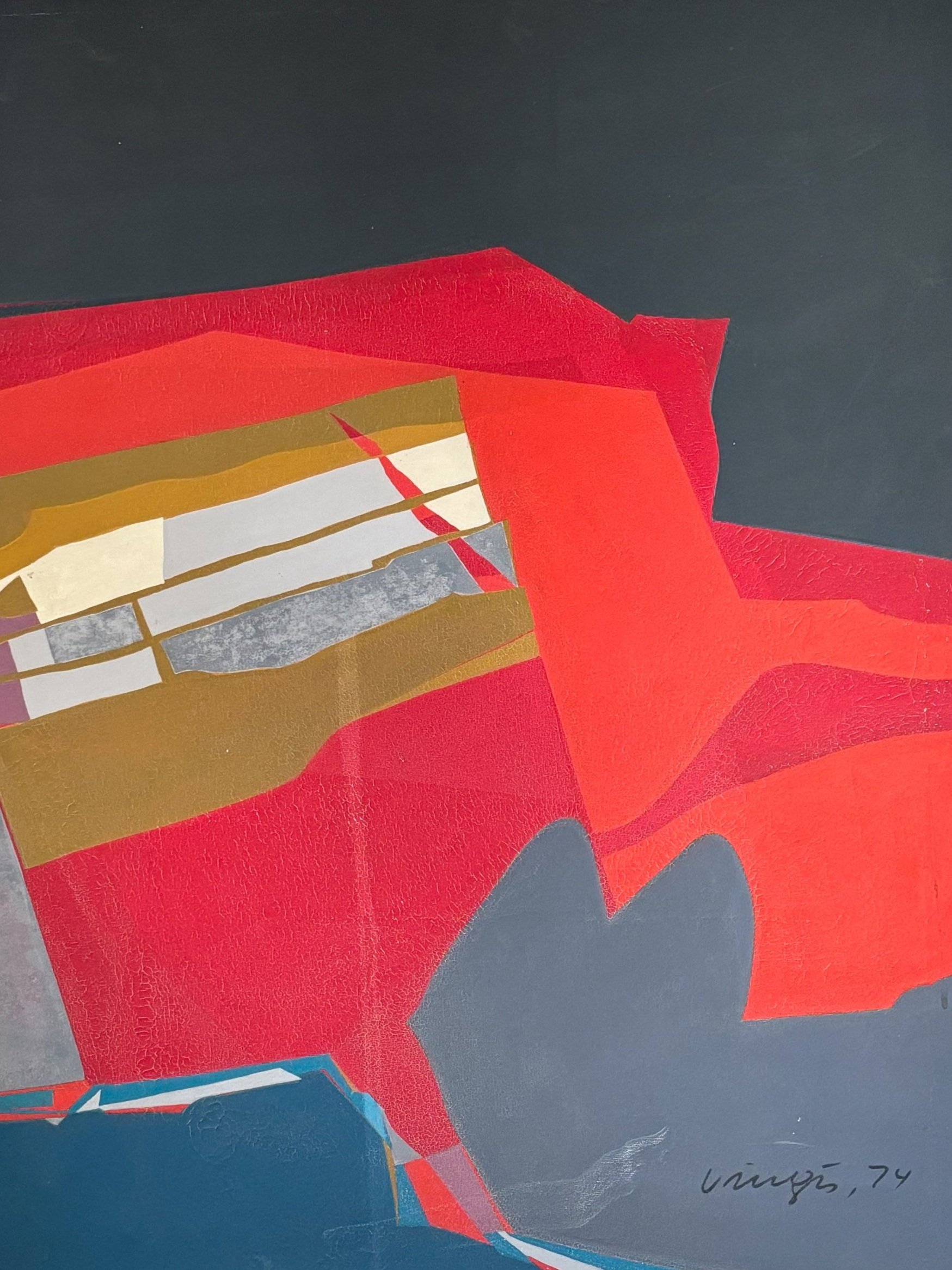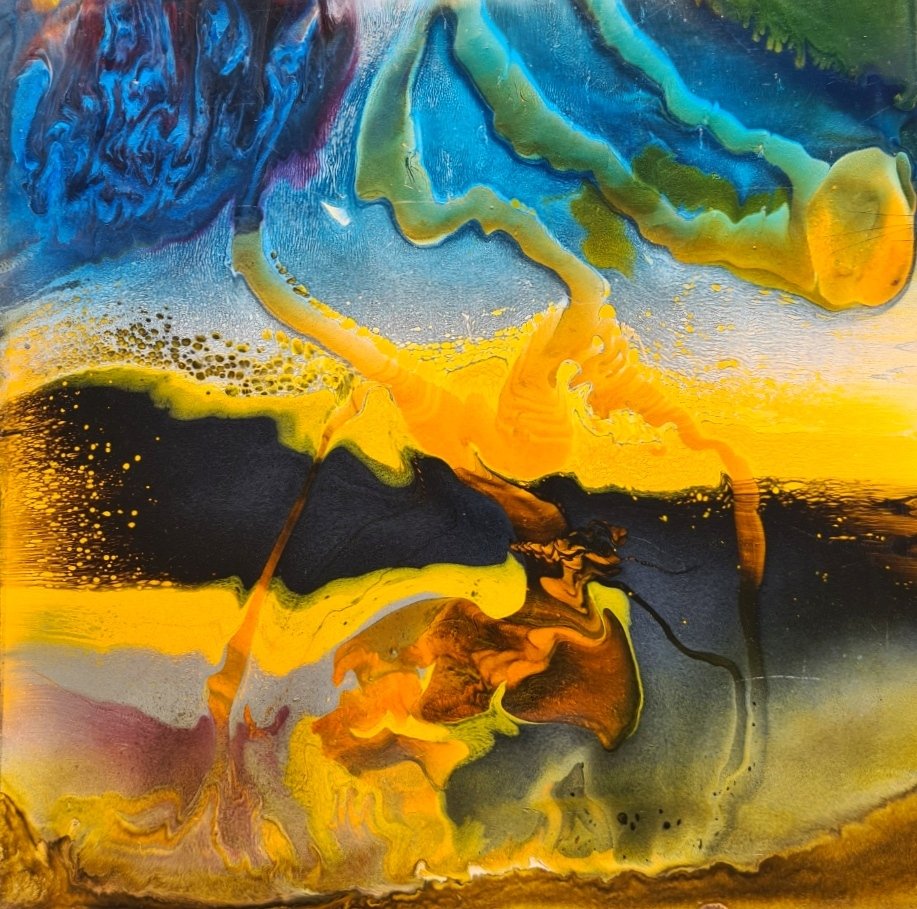
ABOUT THE ARTIST
As chaos engulfed Europe in the aftermath of World War II, Adomas, along with thousands of his fellow Lithuanians, fled with his young family in search of a better life.
He arrived in Australia in 1951, eventually settling in Brunswick, Melbourne and in the 1960s began a prolific period of output creating unique, vivid, abstract works.
MIXED MATERIALS
He began to experiment with different materials, primarily automotive lacquers. These provided vivid colours, often with a metallic sheen, which could be poured into loose, fluid shapes that he could manipulate, sometimes using a compressed-air spray gun.

COLLECTIONS
1960s
During the 1960s, Adomas began a prolific period of output, experimenting with materials and techniques as he explored his creative approaches.
1970s
After his prolific period of creative exploration during the 1960s, as the 1970s began, Adomas turned his attention to refining his visual style.
From Lithuania
to Australia

EARLY LIFE
Adomas Vingis was born in Lithuania in August, 1917. Although he was a naturally gifted artist from an early age, he was largely self-taught and never formally studied art. When World War II broke out, he was already married and the father of one child.
INVASION
The political and social landscape of Lithuania and Europe was in chaos. Invasion followed invasion, and together with hundreds of thousands of his countrymen, he decided to leave with his family. In Germany, as a displaced person, his second child was born, and he studied architecture in Stuttgart.
A NEW START
Finally, the family were accepted as refugees by the Australian government. They arrived in Melbourne in 1951.Settling into a new country and a new society, with a new language, was challenging, so it was only after twelve or so years that he was able to find the time and the space to begin to paint.
INFLUENCES &
EXPERIMENTATION



